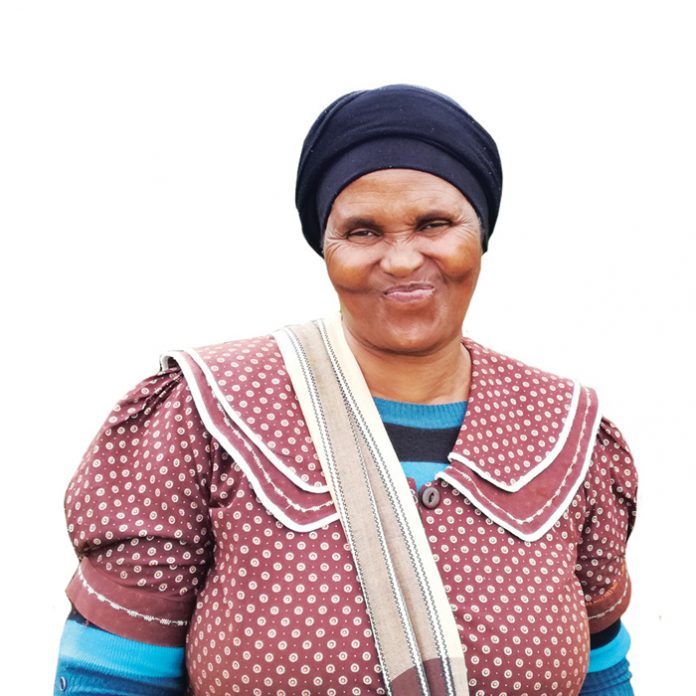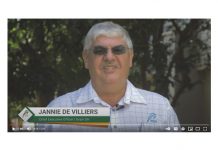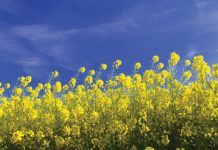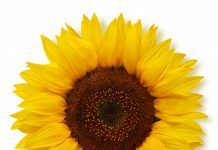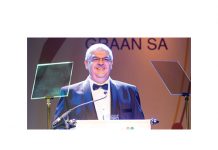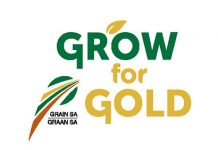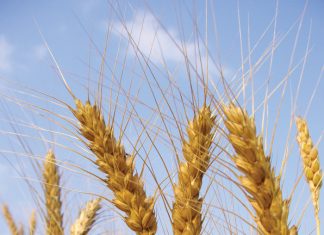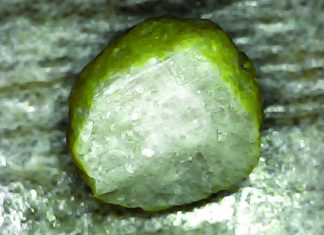September 2018
LIANA STROEBEL, development co-ordinator: Western Cape, Grain SA
It is that exciting time of the year again where the nominees for the 2018 Grain SA Farmer of the Year competition have been identified. We are fortunate to have an excellent group of nominees again.
It must always be kept in mind that the main goal of this competition is not winning; it is about celebrating the learning, growth, development and hard work of the thousands of farmers in the Grain SA Farmer Development Programme. It is meant to be a source of motivation and inspiration for all of us to continuously work towards bettering ourselves to achieve our goals; irrespective of how big they are. Your goal should never be to be nominated or to win anything, but to grow every day, every month and every year to get closer to realising the yields, profitability, the efficiency or whichever goals you have set for yourself and your family. Ultimately, that is winning.
If you have been nominated for this competition, you are doing something right and setting an example for others of what can be achieved. With that said, we would like to introduce you to the 2018 Farmer of the Year nominees. Nominees are in no particular order.
| New Era Commercial nominees | |
| Paul Malindi Agriculture has always been in Paul Malindi’s blood. He was born on 21 June 1969 on a farm in the Heilbron district, where both his parents were farm workers. They were seven children – four boys and three girls. His dad had a few head of cattle on the farm where he worked and Paul had to look after them.When he got the opportunity to lease some fields from another farmer, he immediately jumped at the opportunity. In 2012, he was granted the farm, Dankbaar, by the Department of Rural Development and Land Reform through the Proactive Land Acquisition Strategy (PLAS) system. The 441 ha farm has 320 ha good arable soil and 121 ha of grazing. Paul, who now is 48, leases 130 ha arable land and 170 ha of grazing. This year he planted 254 ha sunflower and 216 ha maize. |
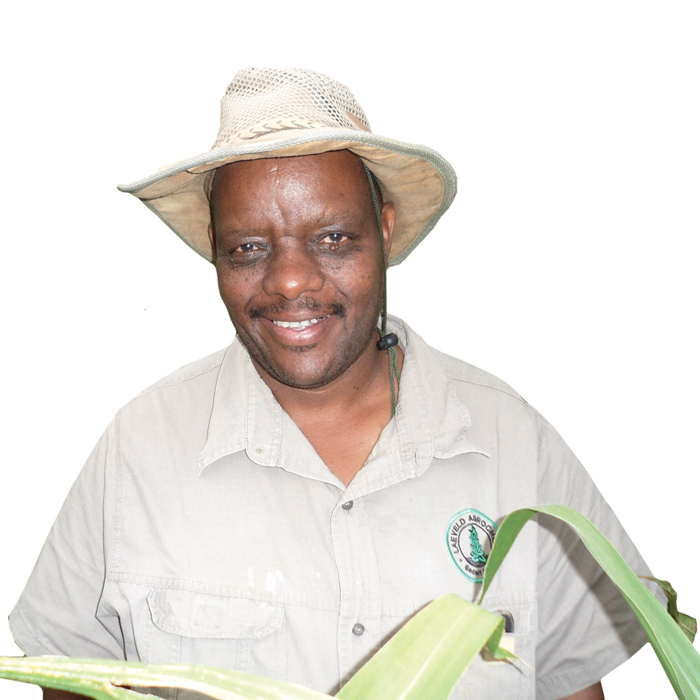 |
| Daniel Maqala Daniel Maqala was born on a farm in the Ficksburg area to parents who were both farm workers. They were four children – two boys and two girls. He used to work on the farm from a very young age, looking after the cattle, milking cows and feeding chickens. His father drove a tractor and he used to sneak away to the fields after school to ride with him.This farmer purchased his own 197 ha farm, Kosmos, with a loan from Land Bank. The Department of Rural Development and Land Reform supported him to obtain the farm, Die Hoop, on the PLAS system – 326 ha – and he has since leased 186 ha of high potential fields near his farm. Daniel currently farms on 709 ha. All the fields are well cultivated and well planted. He has succeeded in making the transition from being a farmer to becoming a food producer, businessman and entrepreneur. He plants five different types of crop and has a livestock component as part of his farming operation. |
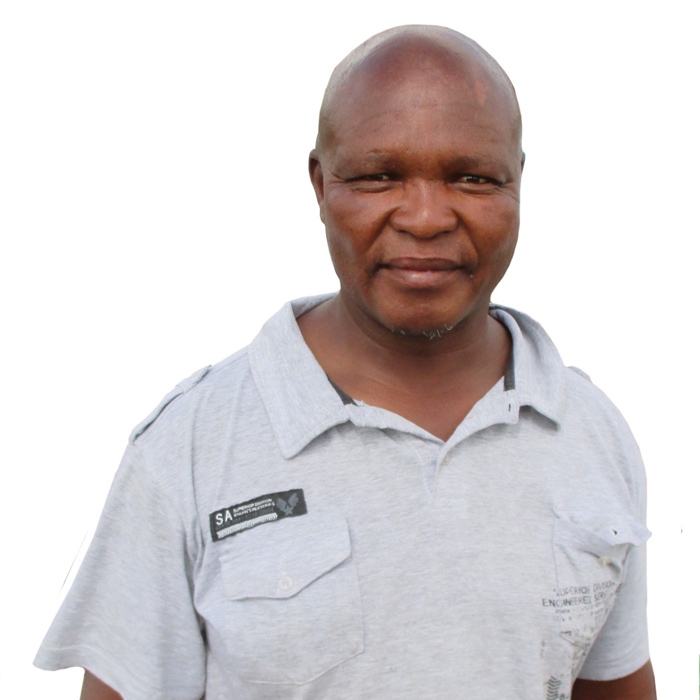 |
| Rykie Raphoto Rykie Raphoto was born in the village of Rietfontein in the trust lands of the former Bophuthatswana. While he was at school he had to help his father plough, plant and look after everything in their subsistence farming enterprise. Working with his father during school holidays, had a huge impact on him and the love that he developed for farming.In 1991 Rykie decided to farm on his own with his son, William, assisting him in the farming operation. They joined Grain SA at the time when the Farmer Development Programme commenced. After a long struggle they received a farm, called Lareystryd, near Lichtenburg in the North West Province from the Department of Rural Development and Land Reform where they are currently still farming. |
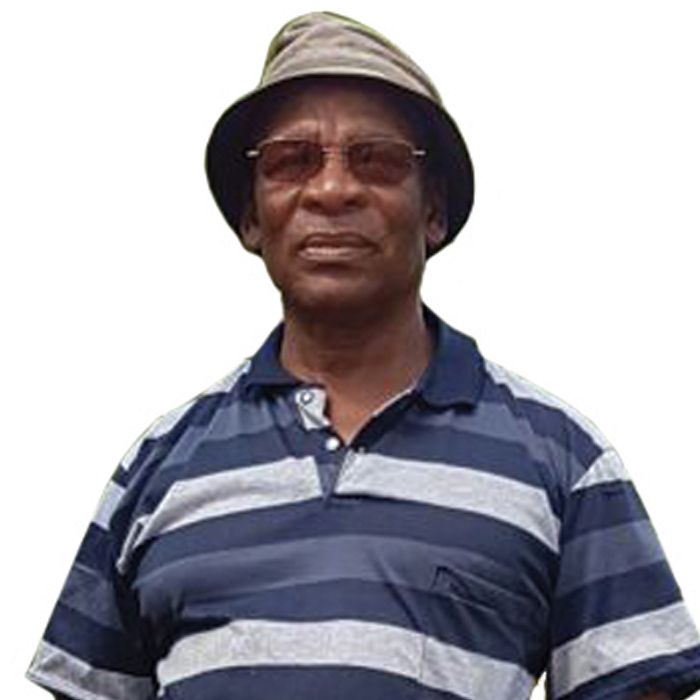 |
| Thamsanqa Sampie Booizene Thamsanqa Sampie Booizene was born on a farm near Ottosdal in the North West Province where his father was a farm worker. He never attended school as, in those days, it was expected of the young men to herd the sheep and to assist wherever necessary in the keeping of the flock.He started his farming business in 1969. While working, he saved up to plough a small piece of land, then bought a few goats, a few cows and eventually a tractor. Thereafter he rented some communal land and as his business grew steadily over the years, he has managed to buy three more farms. He is one of the elders at the Zion Christian Church and a pillar of the community. He is well-known by his fellow commercial producers. If they need something from him, he is always willing to help and they return the favour when Thamsanqa requires something. |
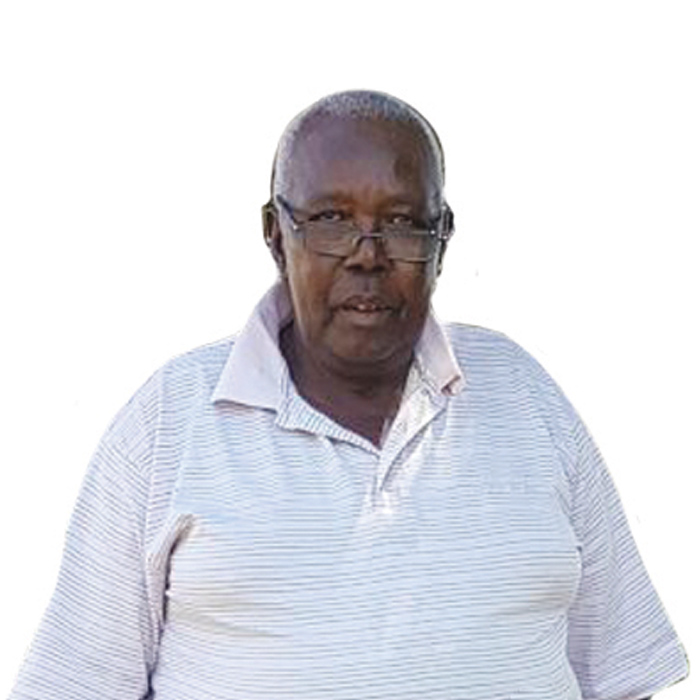 |
| David Ramoledeli Mongoato David Ramoledeli Mongoato was born in Matatiele on 11 October 1970. Both his parents were unemployed, so farming was their only source of income. They worked the land with oxen and planted by hand. His interest in agriculture developed as a young boy working with his parents. This passion grew when he started teaching agriculture in the local school. One could say that he was destined to farm.He began his agricultural career whilst teaching and leased a small portion of land where he began with basic crops and a few head of livestock. Year after year this grew with whatever money he could get his hands on until he was able to lease Donald Drift farm. David has improved over the years, not only in yields, but also with the equipment and assets that the operation now uses. His yield has improved year-on-year. He slowly grew from subsistence to smallholder to an advanced farmer, joining the 250 Ton Club. The growth has been steady and consistent. |
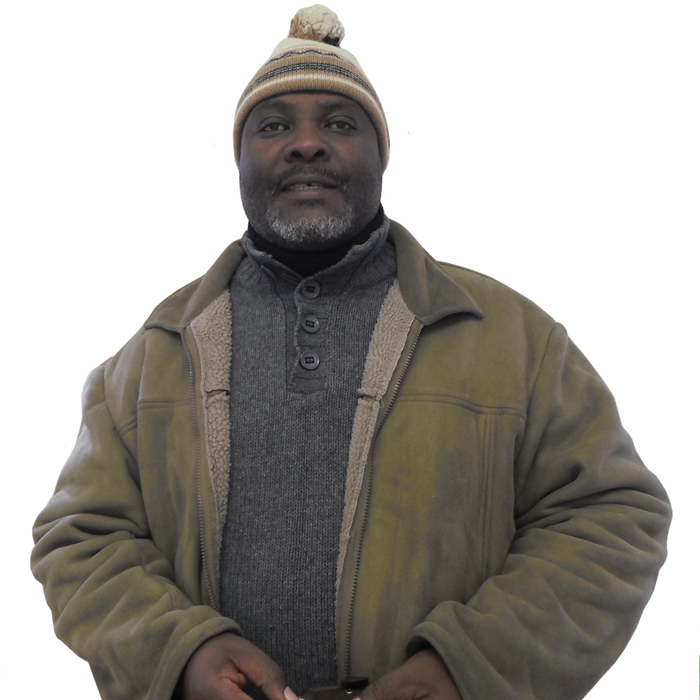 |
| Jeremia Makhosini Mathebula Jeremia Makhosini Mathebula was born on 14 September 1979. He grew up in the Iswepe area near Piet Retief on the Ingwempisi estate farm where he used to help his father plant maize on their small piece of land. His father used to plant 1 ha of maize and he had a herd of twelve cattle on communal land.The starting point in his agricultural career was in 2009 when he started with a herd of twelve cattle and planted only 40 ha of arable land on which he could merely achieve about 4 t/ha of maize. He currently manages over 400 breeding cows and plants a total of 450 ha of maize and 100 ha of soybeans. This farmer has shown growth every year – he leases more farms to be able to plant more maize. He has also grown as an independent farmer as he does everything himself and is progressing by leaps and bounds. |
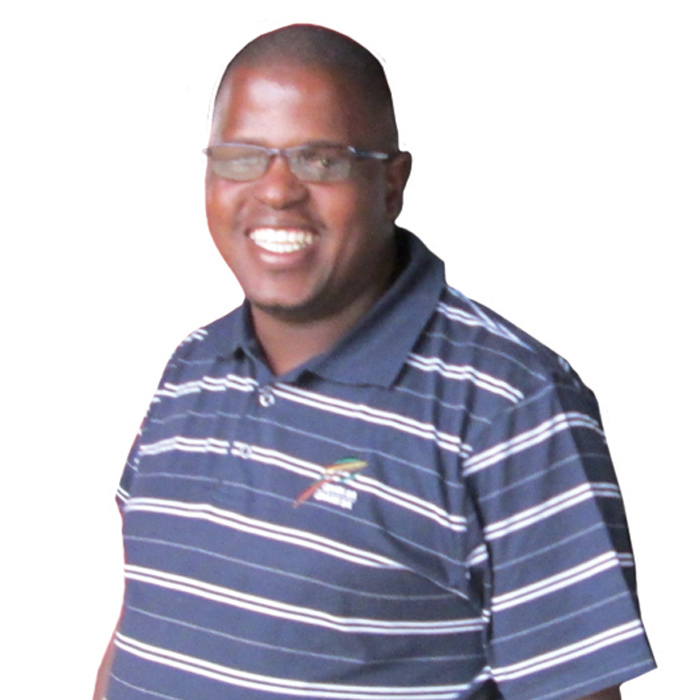 |
| Potential new era nominees | |
| Paulus Mosia Paulus Mosia was born on the farm Vryheid in the Edenville district on 22 September 1968. He was the sixth child of ten children (six boys and four girls). In 2007, he joined the Grain SA Farmer Development Programme and in 2008, he was given the farm Sterkwater by the Department of Rural Development and Land Reform as part of the PLAS Programme.Sterkwater is 200 ha in total, with 60 ha being arable and 140 ha suitable for grazing. Paulus is an active member of the Edenville Study Group. Both he and his wife, Nomasonto, have attended many study group meetings, information days and training courses. Nomasonto was instrumental in starting a new study group in Heilbron, which is now part of the Grain SA Programme. They both declare emphatically that the Farmer Development Programme changed their lives. |
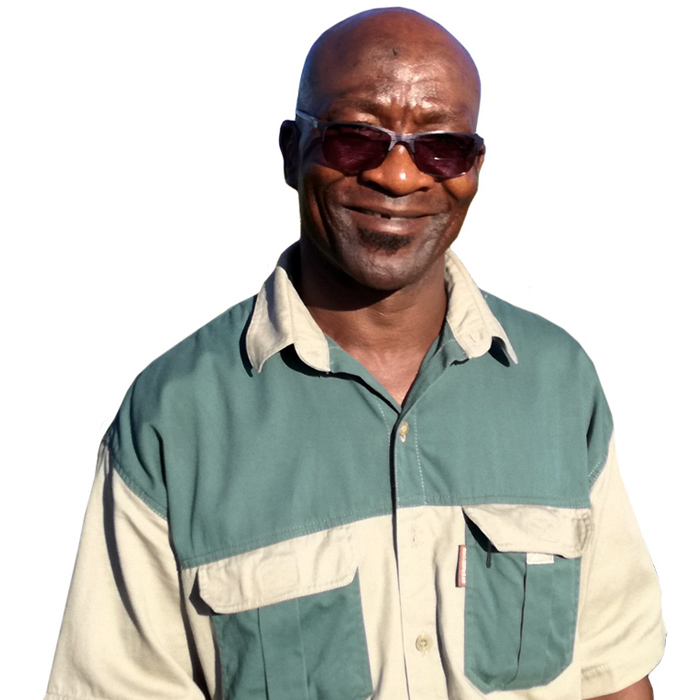 |
| Anton and President Mabaso Anton and President Mabaso were born on a farm, Krytfontein, in the Bothaville district: Anton on 20 February 1966 and President on 7 July 1970. Both their parents were farm workers; they were eleven children – two boys and nine girls. Both brothers have always had a keen interest in agriculture.Since 2010, they were able to secure lands from the Bothaville Municipality. They are very grateful for this as it is not easy to obtain land in Bothaville. The soil is not only considered prime farmland for crop farming, but land is also very expensive in this area. In 2007, the two brothers joined the Grain SA Farmer Development Programme. They attended many study group meetings, information days and training courses. Grain SA also started visiting them on their farms. They felt empowered and were ready to farm. During the past three to four years, they have progressed from subsistence farmers to potential commercial candidates. |
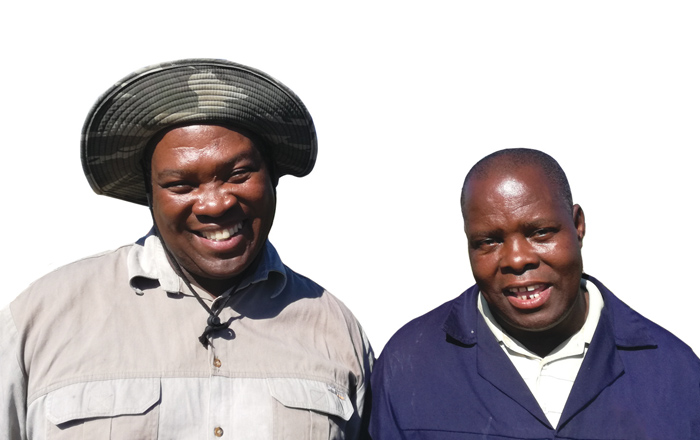 |
| Smallholder Farmer nominees Nhlanhla Sicelo Mngadi Nhlanhla Sicelo Mngadi was born to Muriel and Aron Mngadi on 3 April 1970 in the Ntabamhlophe Village at Estcourt. He joined Grain SA in 2015 after he had seen the beautiful and healthy maize of Mr Mbatha, his neighbour who was already a member of Grain SA at the time. He needed no further motivation to join Grain SA and has never looked back since.Becoming a commercial producer is Nhlanhla’s dream and together with his brother, they are slowly working towards building up their farming capacity and equipment. They have worked hard in implementing what they have learnt. There was not only an improvement in hectares and yields, but also in agricultural practices and efficiency. |
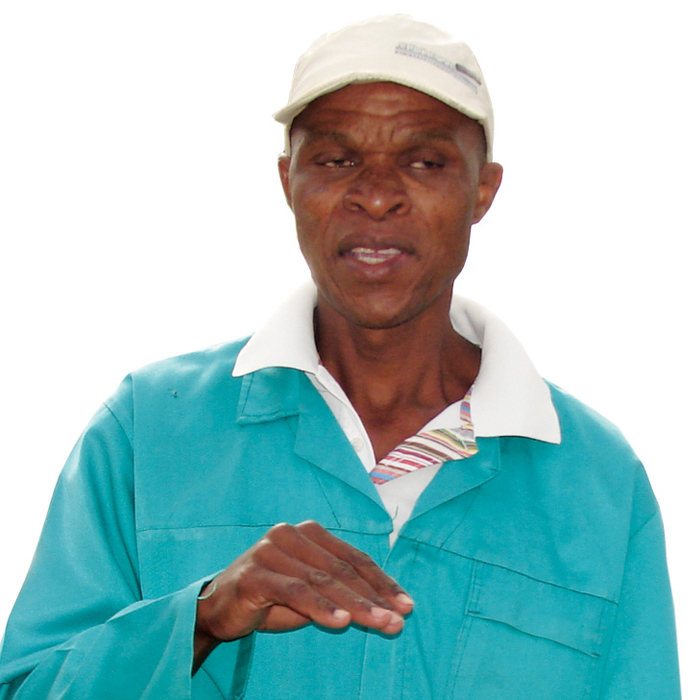 |
| Mduduzi David Mnisi Mduduzi David Mnisi was born in Breyten on the farm Bankfontein in 1986. He was raised on the farm and in 2010 started working with his mother on this farm. He sees agriculture as a means of self-employment and a way of pulling himself out of poverty.He farms under the guidance and mentorship of his neighbour, Mr Corné Butter, and they plan everything together. Three years ago, he became involved in the Department of Rural Development and Land Reform’s Rural Enterprise and Industrial Development (REID) Project – by at first planting 25 ha in the first year and 60 ha in the second year. He currently plants 66 ha. Every year has been extremely successful so far. Through a lot of determination and hard work this farmer has shown other young farmers what can be done when one is given a chance. |
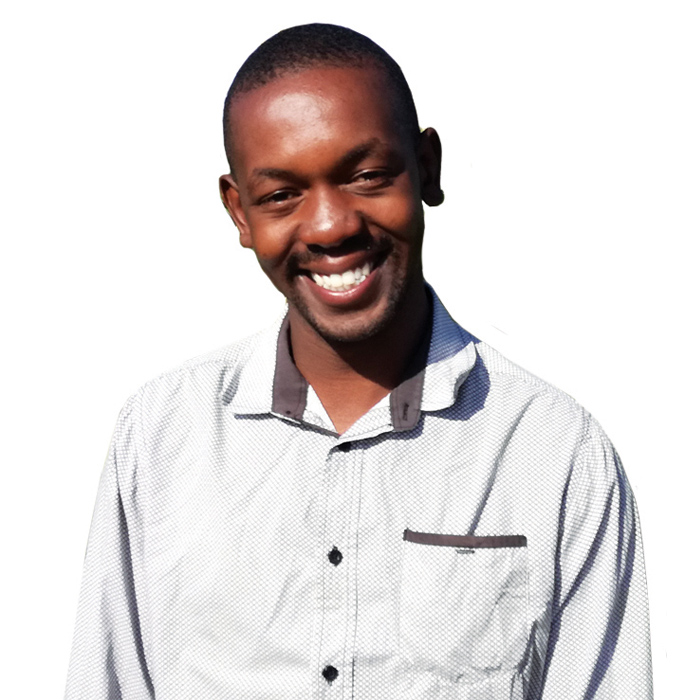 |
| Subsistence Farmer nominees Victor Bumisani Nelson Dube Victor Bumisani Nelson Dube was born on 19 September 1960 and raised in the village of Dukuza in Bergville, KwaZulu-Natal. He started farming in 2000 and joined Grain SA in 2009, attending training, study group meetings and in 2014/2015 he was part of the Monsanto/ARC pilot project. He has since been part of the Jobs Fund Project.His dream is to become a commercial farmer. He has considered various options to improve his profitability – from producing popcorn to value adding like making samp. Vegetables and fruits also form a part of his farming business. |
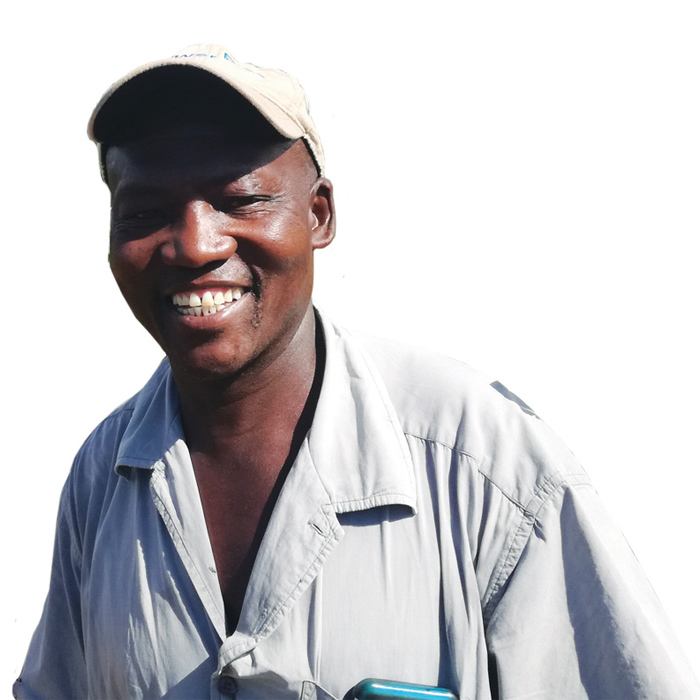 |
| Ndlalankululu Jona Zungu Ndlalankululu Jona Zungu was born in the Matshana area near Wakkerstroom in 1948. He grew up on the farm Ogiesfontein near Wakkerstroom. His interest in farming started at a young age whilst helping his father on the farm to plant and harvest maize.Although he had formerly worked in Gauteng and other places, he returned home in 2007 and decided to try his hand at planting in the hope of getting enough maize for his household. After getting involved with Grain SA, he managed to provide enough for himself and could sell the surplus for an income. |
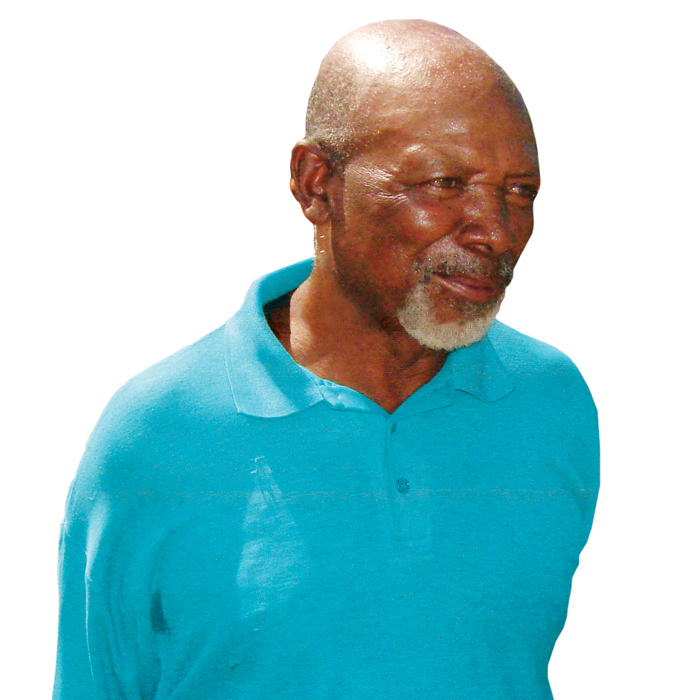 |
| Anderson Cetywayo Magidela Anderson Cetywayo Magidela is a full-time resident of Khanyayo, where he was born on 28 June 1934. He started farming a long time ago, but back then he had no mentor to assist him to employ proper agricultural practices. He became a Grain SA member and began learning a lot about farming.Apart from becoming a farmer, he also learnt how to look after the soil so that the structure does not become degraded. Unfortunately, most people – especially those who do not have the privilege of having mentors – do not look after their soil well. Anderson is proud to be part of Grain SA and is hoping for the best in the future. |
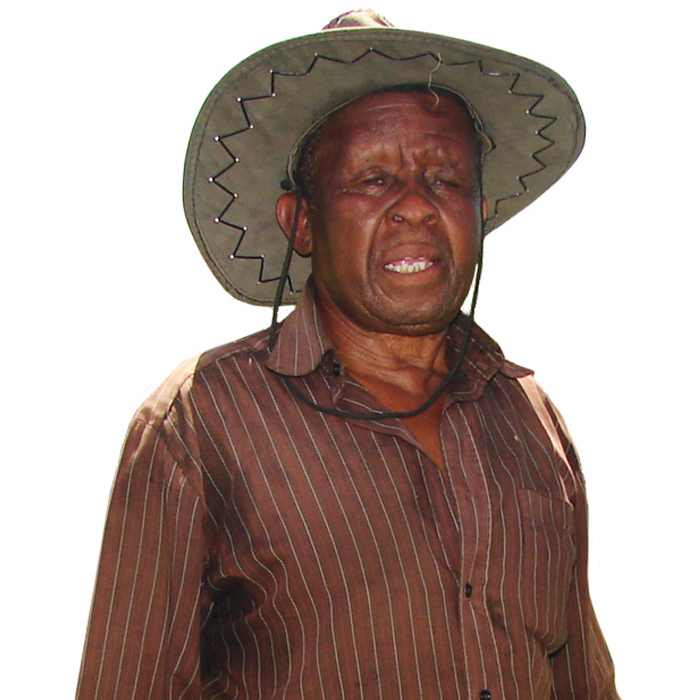 |
| Jeneth Thembi Shoba Jeneth Thembi Shoba was born on Zandspruit between Ermelo and Piet Retief on 5 April 1959. She started to develop an interest in agriculture when she was still young as her parents worked on the farm. It became clear to her that there was no life without agriculture. She started farming with maize and cattle with her late husband, Simon, in 1994. Jeneth joined Grain SA in 2014 and began enjoying farming when she became a study group member of Grain SA.Through Grain SA she gained the skills and knowledge to farm in a more professional and productive manner. During the previous season, she managed to produce 7,5 tons of maize on 1 ha for the first time. |
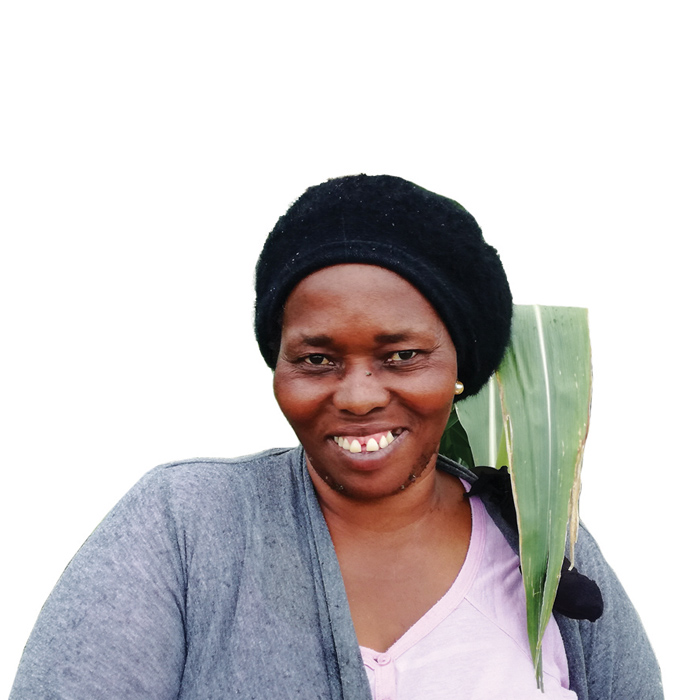 |
| Ncamisile Liphine Mdluli Ncamisile Liphine Mdluli was born in Swaziland to Agnes and Alfred Hlophe on 29 January 1958. She is married to Norman Mdluli and they have six children, of which four are girls and two boys.Her love for agriculture developed at a very young age as she used to help her parents when they were planting and she had to perform various chores in the village they lived in. She officially joined Grain SA in July 2016. Prior to that, she attended some study group meetings as she was interested in what was happening in the agricultural field. This hard-working lady attends and participates in meetings regularly and her mentor is impressed with her diligence to put into practice what she has learnt. |
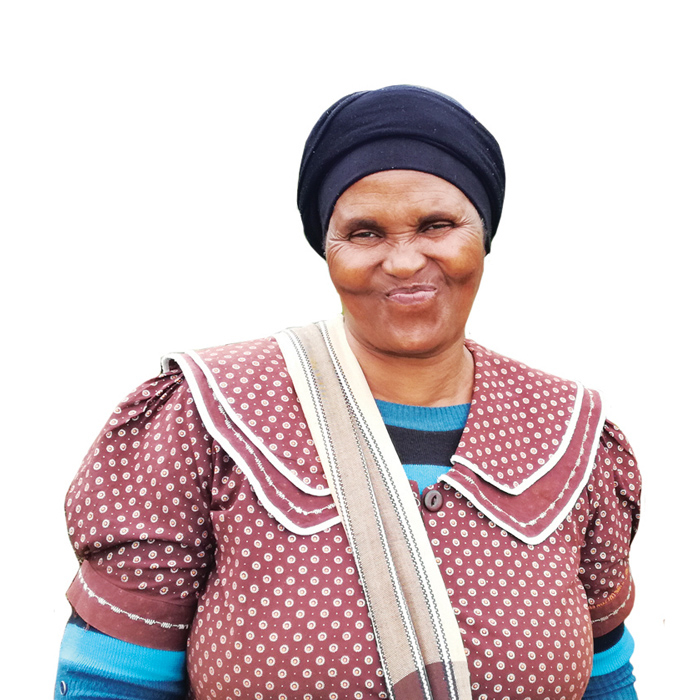 |
| Alfred Magongo Alfred Magongo was born and raised on Mooiplaas near the Elukwatini village in 1958. His father was a farmer and planted maize, groundnuts and sweet potatoes. The money earned from farming helped raise his family.In 1983 he started farming independently with maize and other crops like sweet potatoes and vegetables. He used cattle to plough his arable lands. Currently Alfred plants maize. He planted 7 ha this year. He is an extremely progressive farmer who contributes more and more from his own pocket every year under the Jobs Fund Programme. Last year he achieved an average of 6 t/ha on the 7 ha that he planted. |
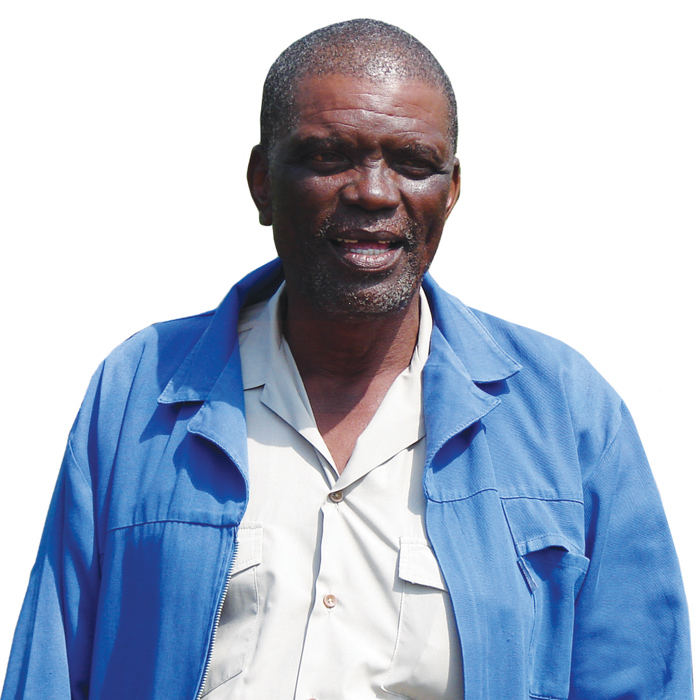 |
| Siyavuya Njeya Siyavuya Njeya was born in Ntlozelo, a village that forms part of Mbizana, a town in the Nikhwe administrative area of the Eastern Cape. This is where he grew up with his family and where he still lives. He comes from a farming family and grew up looking after his family’s animals until he left home to look for work in Welkom in the Free State Province.This farmer has a keen interest in livestock and crop production. With the help of Grain SA he can potentially produce more maize – between 5 t/ha and 7 t/ha. At this stage Siyavuya plants 2 ha of field with maize. |
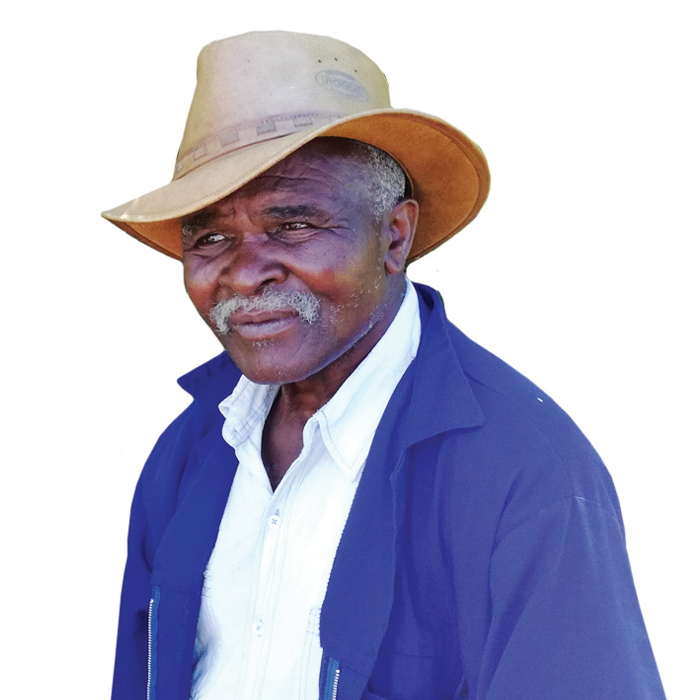 |
| Mgezeni Richard Hlatswayo Mgezeni Richard Hlatswayo was born near Dirksdorp on the farm Twyfelhoek in 1961. He is the third of twelve children. His interest in agriculture developed when he was still young, whilst assisting his father to plough the fields using oxen to pull the plough. This is also where his love of the soil originated. Mgezeni has an interest in livestock and crop production.With the help of Grain SA, he has great potential in producing more maize, considering that he has improved from planting 1 ha to the 3 ha he currently plants. In future Mgezeni would like to plant more maize. |
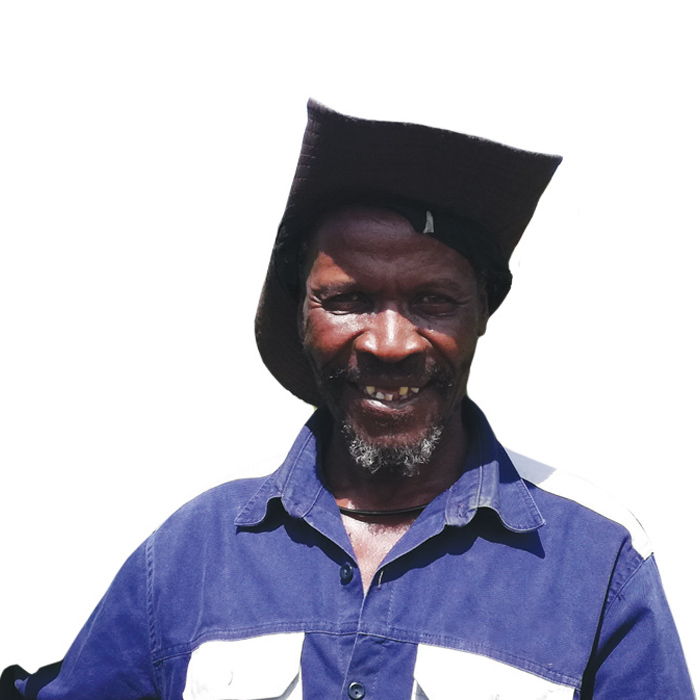 |
| Amos Mfaniseni Kubheka Amos Mfaniseni Kubheka was born in Paulpietersburg, KwaZulu-Natal on 18 December 1955. He developed an interest in agriculture because he farmed with his grandfather and realised that in order to survive and take care of his family, he should be a farmer. His grandfather farmed with both livestock and cash crops and taught him how to farm properly in order to produce good yields.In 2004 he joined the Grain SA study group at Oshoek, which he attended until 2008. He re-joined the Grain SA study group again in 2014 as he realised he was not going to improve his farming activities without the assistance of Grain SA and the skills that they instilled in him. |
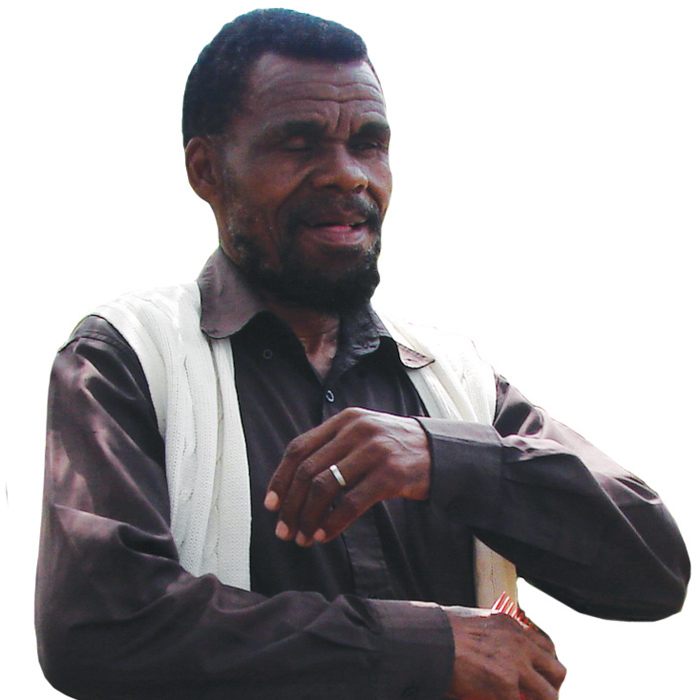 |
| Thenjiwe Mirriam Ngudle Thenjiwe Mirriam Ngudle was born in Qolombana village in the Tsolo district of the Eastern Cape on 1 April 1961. She grew up working in the maize fields, ploughing with cattle before going to school with her brothers. This is where she developed an interest in agriculture.Since 1982, Thenjiwe has been an educator at Ngubesizwe Primary School in the Qumbu District and in 2012 was promoted to principal of the school. This hard-working farmer has managed to harvest good yields of high quality. She is involved with Grain SA as one of the members of the Sityala Sitye Kambi Study Group. |
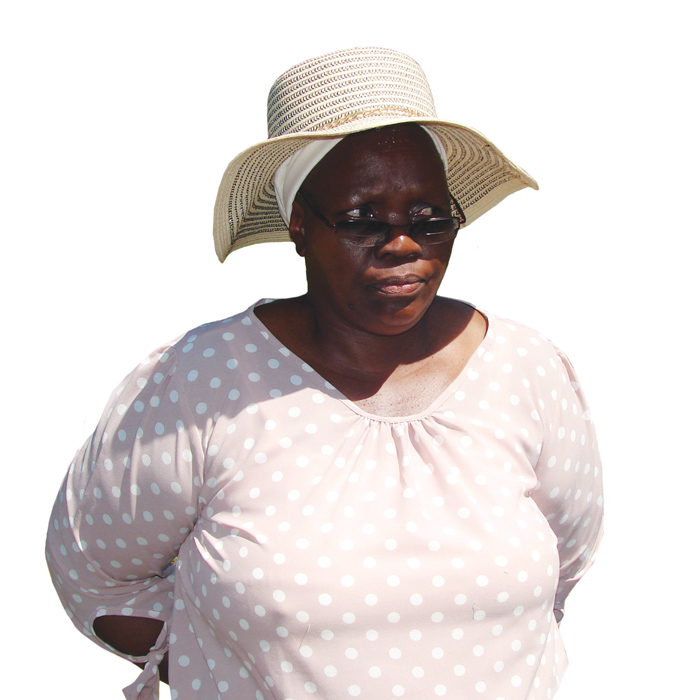 |
| Thembie Linah Shongwe Thembie Linah Shongwe was born in Swaziland on 20 June 1966 and grew up in the Manzini area. She became interested in agriculture as a young girl seeing her parents working in the fields planting various crops in order to provide food for the family.Her interest in agriculture increased after getting involved with Grain SA. Thembie started planting maize in 2009, but she harvested a very small yield. In 2014 she joined the Grain SA study group in Breyten. To her this was an eye opener, because this is where she managed to gain valuable farming skills. Last year she harvested 5,3 tons. She looks forward to improving even further. She dreams of having her own piece of land where she can plant crops to provide for herself. She wants to be able to sell her produce and one day become a sustainable farmer. |
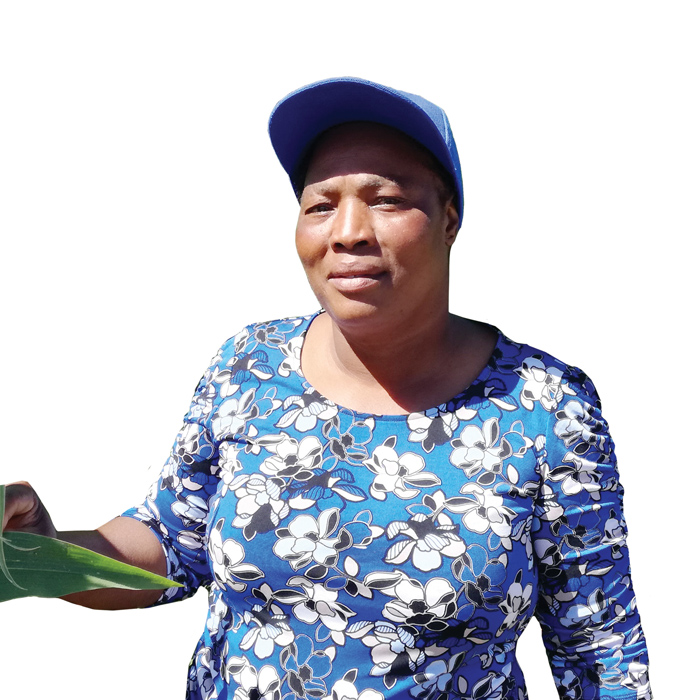 |
Publication: September 2018
Section: Grain SA



